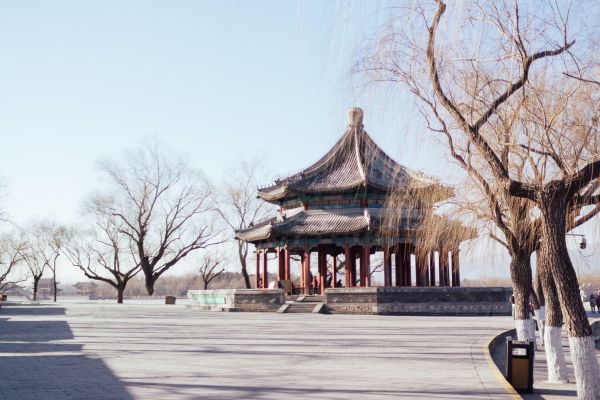
The author of the article is Judge Gao Xiaoli (高晓力), who is the deputy director of China’s Supreme People’s Court (SPC)’s 4th Civil Division. In this article, she summarizes the practices by Chinese courts in the recognition and enforcement of foreign arbitral awards, and demonstrates the SPC’s attitude towards certain relevant issues. One of the responsibilities of the SPC’s 4th Civil Division, where she works, is to direct Chinese courts at all levels in the hearing of foreign-related civil and commercial cases, including the recognition and enforcement of foreign arbitral awards and foreign judgments.
CJO Note: China’s court system is highly hierarchical. To some extent, the SPC’s “guidance” could have a direct impact on pending cases tried by lower courts, thus it needs not wait for the appeals procedure where the SPC may, as the appeals court, overturn the rulings rendered by lower courts. More specifically, the guidance from the SPC’s 4th Civil Division is normally achieved through the following three approaches.
First, in terms of the pending cases tried by local courts, if a local court intends not to recognize a foreign arbitral award, it has to request approval by the SPC. Within the SPC, the 4th Civil Division is in charge of reviewing and responding to such requests from local courts. In other words, it is only upon approval of the 4th Civil Division that local courts may render rulings against recognition and enforcement of foreign arbitral awards. All cases mentioned in this article are cases with the SPC’s replies.
Second, the SPC also issues rules relating to the recognition and enforcement of foreign arbitral awards. These rules are judicial interpretations and binding on Chinese courts at all levels. Again, it is the SPC’s 4th Civil Division that drafts these rules. Recently, the SPC has issued two judicial interpretations relating to arbitration, which also deal with the recognition and enforcement of foreign arbitral awards. The judicial interpretations are the “Provisions on Issues Concerning the Reporting and Approval in the Judicial Review of Arbitration Cases” (关于仲裁司法审查案件报核问题的有关规定), and the “Provisions on Several Issues Concerning the Trial of Judicial Review of Arbitration Cases” (关于审理仲裁司法审查案件若干问题的规定).
This post is an introduction to the article titled “The Positive Practice by Chinese Courts in Recognizing and Enforcing Foreign Arbitral Awards” (中国法院承认和执行外国仲裁裁决的积极实践), which was published in “Journal of Law Application” (法律适用) (No. 5, 2018). “Journal of Law Application” is a periodical of the China National Judges College, which is affiliated with the SPC and is the major education and training institution for Chinese judges.
1. Background
(1) China recognizes and enforces foreign arbitral awards in accordance with the New York Convention
In accordance with the PRC Civil Procedure Law (CPL), Chinese courts shall recognize and enforce foreign arbitral awards pursuant to international treaties or the principle of reciprocity. China has acceded to the Convention on the Recognition and Enforcement of Foreign Arbitral Awards (The New York Convention). For the arbitral awards of the Contracting States to the New York Convention, Chinese courts will recognize and enforce the arbitral awards in accordance with the Convention. However, Chinese courts have not yet received any application by parties from non-Contracting State for recognition and enforcement of foreign arbitral awards and therefore, Chinese courts have no chance to apply the principle of reciprocity.
(2) Definition of "Foreign Arbitration Award" by Chinese Courts
Chinese courts hold the opinion that "a foreign arbitral award" refers to "the arbitral award of foreign arbitral institutions", i.e. the arbitral award made by foreign arbitral institutions in foreign countries.
If the arbitral award is made by an ad hoc arbitral tribunal in a foreign country, it can also be recognized and enforced by Chinese courts.
If the arbitral award is made by a foreign arbitral institution within China, from the perspective of the author, she believes that it shall be deemed as a foreign-related arbitral award in China, rather than a foreign arbitral award, and shall not be applied to the New York Convention. Because in the author’s opinion, the nationality of the arbitral award should be consistent with "the seat of the arbitration", rather than with the nationality of the arbitral institution. At present, the issue has been raised in the case of “German Zublin International GmbH’s application to the Wuxi Intermediate People’s Court of Jiangsu Province for the recognition and enforcement of an arbitral award made by the ICC International Court of Arbitration in Shanghai”, but the SPC did not take a clear stand on such issue.
(3) The SPC is studying how to recognize and enforce arbitration awards related to investment disputes
China has become a major country for outbound investment, and arbitration clauses are also commonly found in the bilateral investment protection agreements that China has recently concluded. Such arbitration clauses generally stipulate the arbitral settlement methods other than the International Centre for Settlement of Investment Disputes (ICSID) established under the Convention on the Settlement of Investment Disputes between States and Nationals of Other States in 1965.
However, with regard to arbitral awards made by foreign arbitral institutions or ad hoc arbitral tribunals outside of China concerning investment disputes between host countries and investors currently, they cannot be applied to Chinese courts for recognition and enforcement under the New York Convention. The SPC is still studying the recognition and enforcement of such arbitral awards in China.
(4) The SPC attempts to recognize foreign arbitral awards as far as possible
The SPC currently emphasizes that only if at least one of the grounds listed in Article V of the New York Convention occurs, Chinese courts can render a ruling against recognition and enforcement of the foreign arbitral award, and each ground should be strictly interpreted. The aim of the SPC is to raise the threshold for Chinese local courts to render a ruling against recognition and enforcement of foreign arbitral awards.
2. How do Chinese courts review foreign arbitral awards
(1) Whether there is a valid arbitration agreement?
In the case of “Castel Electronics Pty Ltd’s application to the Zhongshan Intermediate People’s Court of Guangdong Province for the recognition and enforcement of an Australian arbitral award”, before the Chinese court applied Chinese law in accordance with the Chinese conflict of laws rules and ruled that the arbitration agreement is null and void, the foreign arbitral institution determined, pursuant to the law at the seat of the arbitration and arbitral rules, that the arbitration agreement is valid and rendered an arbitral award. The SPC believes that under such circumstance, the Chinese court may recognize and enforce that arbitral award and do not consider that such arbitral award violates Chinese public policy.
In both cases of “Application of Yideman Asia Private (Singapore) Co., Ltd. for recognition and enforcement of foreign arbitral award made by Cocoa Association of London” and “Application of Allenberg Cotton Co. to Ningbo Intermediate People's Court of Zhejiang Province for recognition and enforcement of foreign arbitral award made by the International Cotton Association in UK”, the SPC believes that since the parties do not reach the arbitration agreement on a voluntary basis, an arbitral award, which is rendered by the arbitral institution in accordance with the arbitration agreement unilaterally formulated by one party, may not be recognized and enforced by Chinese courts.
(2) Whether the parties concerned are not given proper notice or unable to present the case?
In the case of “Application of German I.Schroeder KG (GmbH&Co.) to Dandong Intermediate People's Court of Liaoning Province for the recognition and enforcement of an arbitral award made by Waren-Verein der Hamburger Börse e.V.”(http://cicc.court.gov.cn/html/1/219/199/204/714.html), the SPC states that the arbitral tribunal posted the arbitration documents by registered mail and that the postal company has certified that it “has delivered to the legal recipients”. The respondent argued that it had not received the materials posted by the arbitral tribunal, but did not provide sufficient evidence to prove it. Under such circumstance, Chinese courts shall consider that the arbitral tribunal has given proper notice to the parties.
Continue on China’s Supreme Court Talks about Recognition and Enforcement of Foreign Arbitral Awards in China-Part II
If you would like to discuss with us about the post, or share your views and suggestions, please contact Ms. Meng Yu (meng.yu@chinajusticeobserver.com ).
If you need legal services for the recognition and enforcement of foreign judgments and arbitral awards in China, please contact Mr. Guodong Du (guodong.du@chinajusticeobserver.com ). Du and his team of experienced attorney will be able to assist you.
If you wish to receive news and gain deep insights on Chinese judicial system, please feel free to subscribe to our newsletters (subscribe.chinajusticeobserver.com ).
Contributors: Guodong Du 杜国栋 , Meng Yu 余萌









